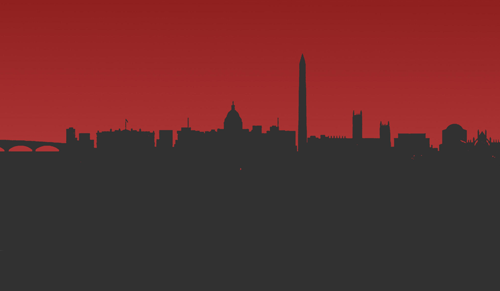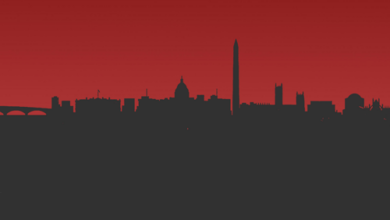
The Quick Take
A quick look at the headlines this week 👀🏃🏻♀️
- Israel: Benjamin Netanyahu won a fifth term, as rival Benny Gantz concedes – and despite possible corruption charges against him. Netanyahu will lead a right-wing bloc in the Knesset, Israel’s parliament, with 65 out of 120 seats. This win will make Netanyahu Israel’s longest serving prime minister.
- Wikileaks: Ecuador, which had been providing Wikileaks founder Julian Assange asylum, gave him the boot yesterday. London police arrested him, per an extradition order from the U.S.
- Brexit: Nope, today’s not the day either. If the UK indeed does leave the European Union, that will happen on October 31. The EU agreed to extend Article 50 until Halloween. Trick or treat? Let the memes begin! 🎃👻
- Iran: The White house designated Iran’s Revolutionary Guard Corps, a branch of Iran’s military, as a terrorist group. It’s the first time the U.S. has ever given that label to a government entity. Yes, that does increase chances of a confrontation, if you’re wondering.
- Libya: Fighting broke out between the Libyan National Army, under the authority of Khalifa Haftar, (which isn’t really an army, but a militia), and the Libyan leadership in Tripoli, in the outskirts of the country’s capital, (which is incidentally backed by militias).
- Egypt: We would have called it the Summit of Strongmen. Egypt’s leader, Abdel Fattah al-Sisi hung out with Donald Trump this week at the White House.
- India: 900 million Indians will cast their votes to elect a new lower house of parliament. The voting will run through May 19, and results will be announced on May 23.
- Indonesia: Indonesians go to the polls to elect a new president on April 17.
Sudan: It’s being compared to the Arab Spring. The people of Sudan, unhappy with high food prices, took to the streets in December, calling for President Omar Bashir to step down. Those protests escalated this week, on April 6, the anniversary of an uprising that removed the dictator Jaafar Nimeiri in 1985. On Thursday, Bashir stepped down. What’s next? The military takes control. It has said that Sudan will hold elections in two years.

Bashir, Bibi, and the Bearded One – Oh boy! Or Let’s Save Democracy: Part II

Bashir is out in Sudan. Bibi Netanyahu is still at the helm in Israel. Assange, who is currently sporting (not very well) a beard, is now in custody. On first glance, this week’s headlines do not seem to connect. Digging deeper, however, one can’t help but see the narrative thread: “democracy.”
A lot has been made about the growing democratic recession, the weakening of democracy and of democracies around the world. It is a real and worrying trend. Yet, are we confusing — if not mistakenly focusing on — “democracy,” its decline and the rise of authoritarians when we should be worried about the rule of law?
Authoritarians and strongmen, such as Bashir and Netanyahu, along with Orban, Erdogan, Putin, Bolsonaro, Modi, and Duterte indeed have throttled democracy. Trump is trying hard to do the same. It’s important to remember that most of them have done so democratically, through elections and legislation. Each, in his own way, has pleaded that his country’s security and future depended on stricter controls and fewer freedoms. Security above freedom. That is certainly something Americans have seen since 9/11, with the passage of the Patriot Act and the creation of Homeland Security.
And because freedom is under attack, people proclaiming to be “whistleblowers” take the opportunity to pile on further. Yes, we’re talking about Wikileaks founder Julian Assange. Assange wants us to believe that he is a whistleblower, exposing emails in the name of transparency. As Katrina Mulligan has noted, in an excellent thread on this, “we must consider whether he is equally interested in transparency for all government conduct he opposes, or only when certain governments are involved.” She points out that Assange “disproportionately targeted the U.S. government while simultaneously cozying up to authoritarian governments whose secrets he did not disclose.”
If we are going to reverse the democratic recession and fight authoritarians, we have to look beyond democratic tools and go straight to democracy’s foundation: the rule of law. Right now, authoritarians and so-called whistleblowers are manipulating “democracy” to gain power. If democracy is to serve all the people and ensure continued civil liberties, we need to hold leaders and public figures to account. That means not compromising on the rule of law — and using the law to keep the strongmen in check.
It’s worked in the U.S., where Trump seems to see laws as an inconvenience — and something to be ignored. It’s not. The rule of law is what gives the U.S. its power, not its markets or military. It’s time to get busy protecting it. Democracy depends on it.
Headlines this week…..
Don’t hate me bro: Emma Green looks at what the future may hold for the Israeli-diaspora relationship with another Bibi term. (The Atlantic)
Generation fight: Mounting protests in Sudan highlight the rise of Africa’s activist generation, says K. Riva Levinson. (The Hill)
Teacher said so: Academics have shaped Sudan’s political history, and may do so again, writes Willow Berridge. (The Conversation)
Who’s that girl? Alaa Salah has become a symbol of Sudan’s protests. Salwa Sadak on her, and the women that rose up against Bashir. (Vox)
Help! Days away from the Brexit deadline, Theresa May is looking for help, Amy Davidson Sorkin writes. (The New Yorker)
We’re not just like you: Brexiteers are just like Trumpists – except on free trade, writes Megan McArdle. (Washington Post)
Under pressure: Trump has denounced Iran’s most powerful security services as a ‘foreign terrorist organization,’ heightening the U.S.’s ‘maximum pressure’ approach to the latter — but to what end? Kathy Gilsinan discusses. (The Atlantic)
India election guide: Alyssa Ayres tells us what we need to know about upcoming elections for the world’s largest democracy, India. (CFR)
No place to be: Rampant corruption and gang violence in Honduras has led to thousands of women seeking asylum in the US, says Sonia Nazario. The country is one of the deadliest in the world, and many women are killed by drug cartels and gangs to spread terror. (NYT)
He’s not who you think: Don’t be fooled by Abdel Fattah al-Sisi’s gestures toward Christians, say Amy Hawthorne and Stephen McInerney. He’s not the enlightened Egyptian leader you think he is. (Foreign Policy)
Brazilian world view: Brazilian President Bolsonaro’s tour of Israel last week reveals the cracks in his right-wing Christian vision; if his slogan, ‘Brazil above everything & God above all” crumbles, it may spell the end of his ‘anti-globalist’ foreign policy. Catherine Osborn discusses. (Foreign Policy)
Taming the market: How to stop Venezuela’s hyperinflation? Brazil offers an idea, writes Monica de Bolle.(Americas Quarterly)
MUSLIM: be very afraid: Whether or not media differentially apply the “terrorism” and “mental illness” labels based on perpetrator identity, one thing is clear: Muslim attackers receive more news media coverage, write Erin Kearns and Amarnath Amarasingam. (Just Security)
BFF: Debbie Bookchin on what the U.S. owes the Kurds, its best ally against ISIS. (NYRB)
Tahrir redux? Is Algeria new evidence that the march continues for opening up political affairs in the Arab world? Or will angry crowds in the streets of Algiers meet the same fate of their Egyptian and Syrian counterparts? Ellen Laipson deep-dives. (World Policy Review)
Rape is a crime: Last Sunday marked 25 years since the Rwandan Genocide began; Sara Darehshori looks at how the testimonies of Rwandan women established rape as a war crime and paved the way for prosecution. (Al Jazeera)
Give me the mic: Rwandans are still blocked from seizing the narrative of their stories, says Anais Mutumba. She writes, “Apart from grief, what I struggle with most at this time of the year are the incorrect figures, the notion that the genocide came out of nowhere, and the absolution of Rwanda’s colonizers.” (The Independent)
Muzzling mouths: Singapore’s draft law adds to a regional pattern of using “fake news” to suppress legitimate journalism and expression. Allie Funk dives into how to fight disinformation while also protecting human rights. (Just Security)
Indonesia elections: Ahead of elections in Indonesia next week, Eve Warburton and Burhanuddin Muhtadi explore the politicization of inequality – in Indonesia and beyond. (Brookings)
BRI: A lot has been made about China’s Belt and Road Initiative. But does it pose a military or strategic threat to the West? Deborah Brautigam says, “nah,” just an economic one. (American Interest)
Another no: Puerto Rico is far from recovery, so why did Congress reject another relief package? FPI Fellow Fatema Sumar answers. (The Hill)
Bad for biz: Today’s nationalism is bad for business, and finance and business leaders should do more to combat it, argue Lise Kingo and Scott Mather. (Project Syndicate)


